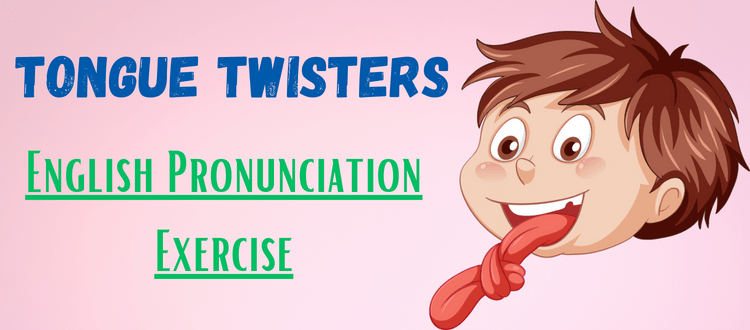“English Tongue Twisters: Fun Exercises for Improved Pronunciation”
Introduction: Tongue twisters are entertaining wordplay exercises that can be both fun and beneficial for improving your pronunciation in English. They challenge your tongue, lips, and vocal cords to work together, enhancing your speech clarity and fluency. In this blog, we’ll explore some classic and challenging English tongue twisters and provide tips on how to effectively practice them. Benefits of Tongue Twisters for Kids As mentioned earlier in the article the benefits accruing from tongue twisters for kids are substantial. Let’s have a look: 1. They help the little ones learn a variety of consonant sounds. 2. Pronouncing these tongue twisters helps children learn to speak clearly. 3. It helps the children’s reading ability as well. 4. They help children pronounce words better. 5. It helps children who lisp overcome their condition. 6. Tongue twisters help children develop a sense of humor. 7. Tongue twisters help enhance your vocabulary. 8. Mastering tongue twisters is good exercise for the brain. 9. It is a form of mouth exercise stretching and strengthening the facial muscles. 10. Tongue twisters can be used as a fun game for entertaining children. 11. They help kids understand the sounds that they are weak at pronouncing Advantages of Practicing English Tongue Twisters Practicing English tongue twisters provides a host of advantages to small school-going children that will stand them in good stead in life. Let us look at a few: 1. Makes them love words. 2. Makes them understand humor. 3. Makes them more confident people. 4. Makes them expand their vocabulary 5. Improves their diction. Conclusion: Tongue twisters can be both an enjoyable linguistic challenge and a useful tool for improving your pronunciation and fluency in English. By regularly practicing these exercises, you can develop better control over your articulation, intonation, and overall speaking skills. Incorporate them into your daily language practice routine, and you’ll see noticeable improvements in your spoken English over time. So, go ahead, give these tongue twisters a try, and watch your pronunciation skills soar!
“English Tongue Twisters: Fun Exercises for Improved Pronunciation” Read More »





